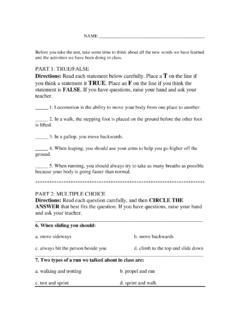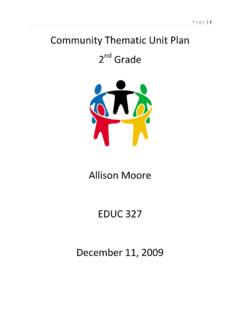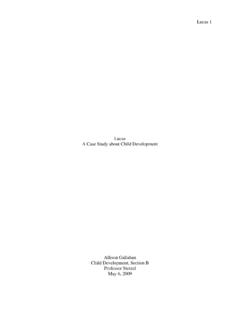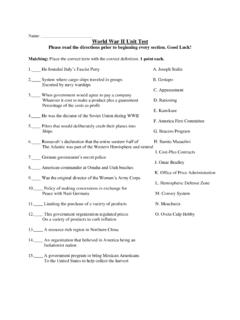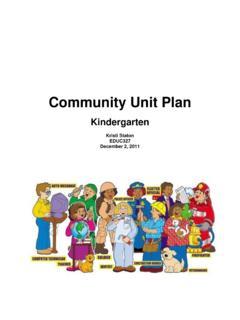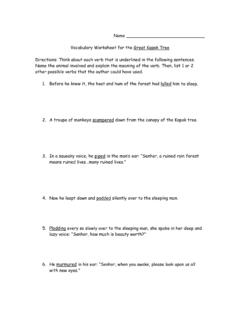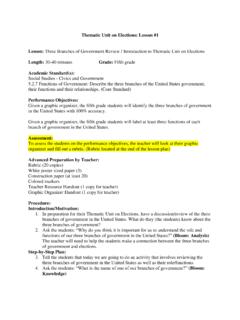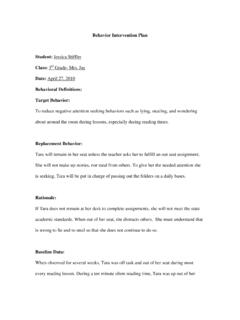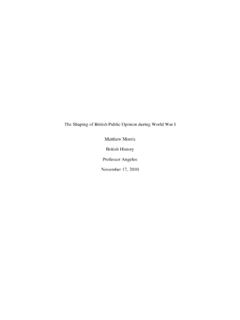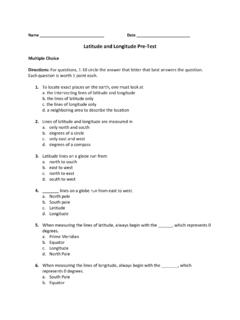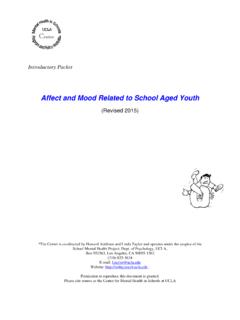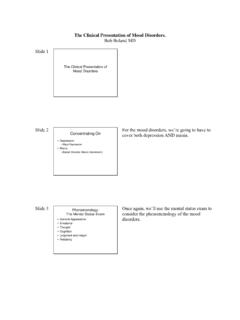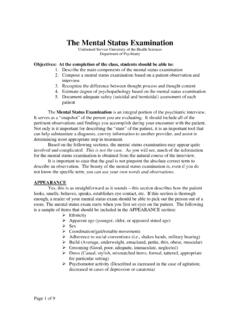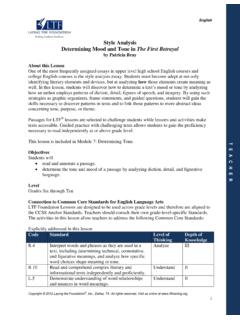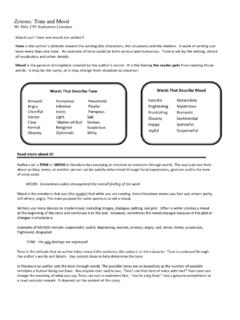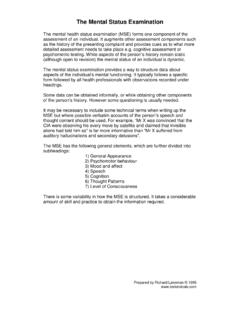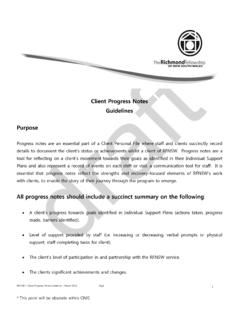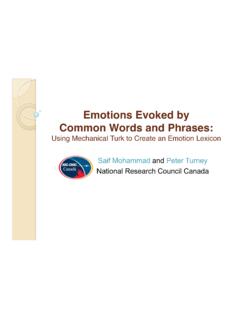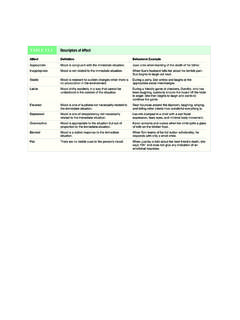Transcription of TONE & MOOD - users.manchester.edu
1 TONE & mood *Identifying the tone or mood is often an important clue to help the reader discover literary themes. *Considering how a writer creates a certain tone or mood helps the reader appreciate the author s style. Tone: Style or manner or expression in speech or writing. The Dictionary of Literary Terms by Martin Gray (Longman/York Press, 1996, ISBN 0-582-08037-1) gives the following for tone: ..Tone is thus a critical concept which implies that literature is like speech, requiring a speaker and a listener, tone being the attitude adopted by the speaker to the listener---the author s attitude toward the work, events, characters, or the reader/audience --, gathered and understood from the kind of syntax and vocabulary used. For the full understanding of a work it is essential to recognize its tone or range of tones, however difficult that may be, especially for non-native speakers of English.
2 Some adjectives to describe TONE: Formal, informal, serious, humorous, amused, angry, playful, neutral, satirical, gloomy, conciliatory, sad, resigned, cheerful, ironic, clear, detailed, imploring, suspicious, mood : Atmosphere, state of mind. The Dictionary of Literary Terms by Martin Gray (Longman/York Press, 1996, ISBN 0-582-08037-1) gives the following for mood : mood , a term used synonymously with atmosphere to indicate in a literary work the prevailing feeling or frame of mind, especially at the start of a play, poem, or novel, creating a sense of expectation about what is to follow. Some adjectives to describe mood : Fictional, imaginary, fanciful, idealistic, romantic, realistic, optimistic, pessimistic, gloomy, mournful, Excited: Beethoven Symphony Peaceful: Pachelbel's Canon in D (Very full orchestra) Happy: Powerful: @ 1min Name: _____ Date: _____ Feeling words happy excited frustrated confused angry sad surprised anxious scared unhappy nervous relieved relaxed reassured passionate embarrassed irritated disappointed uncertain skeptical optimistic restless threatened offended heartbroken mournful bored guilty Directions: Write a (+) next to words with a positive feeling; write a (-) next to words with a negative feeling; write an N next to words that are neutral.
3 Name: _____ Date: _____ Feeling words happy excited frustrated confused angry sad surprised anxious scared unhappy nervous relieved relaxed reassured passionate embarrassed irritated disappointed uncertain skeptical optimistic restless threatened offended heartbroken mournful bored guilty Directions: Write a (+) next to words with a positive feeling; write a (-) next to words with a negative feeling; write an N next to words that are neutral.
